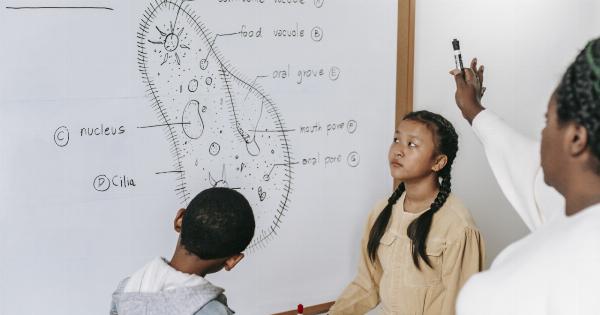In today’s rapidly changing world, the right match between youngsters and their environments is crucial for a well-rounded development.
However, there are certain career choices, education systems, and parenting approaches that may prove to be the poorest matches for young individuals. These mismatches can have adverse consequences on their mental, emotional, and academic growth. In this article, we will explore some of the poorest matches for youngsters and delve into the reasons behind their unsuitability.
Career Choices
Choosing the right career path is a significant decision that shapes a person’s future. Unfortunately, there are certain career choices that do not align well with the nature, interests, and skills of youngsters. Here are some examples:.
1. Forced Professions
When young individuals are forced into professions by their parents or societal pressure, it often leads to unhappiness and dissatisfaction.
Forcing a career choice upon youngsters based on external expectations rather than their genuine interest can stifle their true potential.
2. Incompatible Skills
Some career paths demand specific skills that may not align with a youngster’s natural abilities. For instance, a highly empathetic individual may not thrive in a highly competitive business-oriented career.
The mismatch between their inherent qualities and the demands of the job can create a constant state of stress and dissatisfaction.
Education Systems
The education system plays a vital role in nurturing young minds and preparing them for their future endeavors. However, certain education systems can prove to be a poor match for youngsters due to various reasons:.
1. One-Size-Fits-All Approach
An education system that follows a one-size-fits-all approach fails to acknowledge the unique learning styles and individual needs of each student.
It robs youngsters of the opportunity to explore their interests and talents, leading to disengagement and hindered growth.
2. Exam-Centric Evaluation
Systems that prioritize exams as the sole determining factor of a student’s intelligence overlook other essential skills and competencies.
This narrow focus on grades can create an unhealthy competitive environment that fosters anxiety and discourages creativity in youngsters.
Parenting Approaches
Parenting plays a vital role in shaping a child’s upbringing. However, certain parenting approaches can be the poorest match for youngsters’ development:.
1. Helicopter Parenting
Overprotective and excessively involved parents, commonly known as helicopter parents, may hinder a youngster’s independent decision-making and problem-solving abilities.
This parenting style prevents youngsters from learning vital life skills and can lead to a lack of confidence and self-esteem.
2. Neglectful Parenting
Neglectful parenting, characterized by a lack of emotional support and guidance, can have severe consequences on a youngster’s overall development.
Without appropriate guidance and nurturing, youngsters may struggle to cope with challenges and develop healthy relationships.
In conclusion, the poorest matches for youngsters can be found in mismatched career choices, unsuitable education systems, and improper parenting approaches.
It is essential for society, parents, and educational institutions to recognize the importance of understanding and aligning with the unique needs and aspirations of young individuals. By providing the right support and guidance, we can help youngsters thrive and reach their true potential.






























